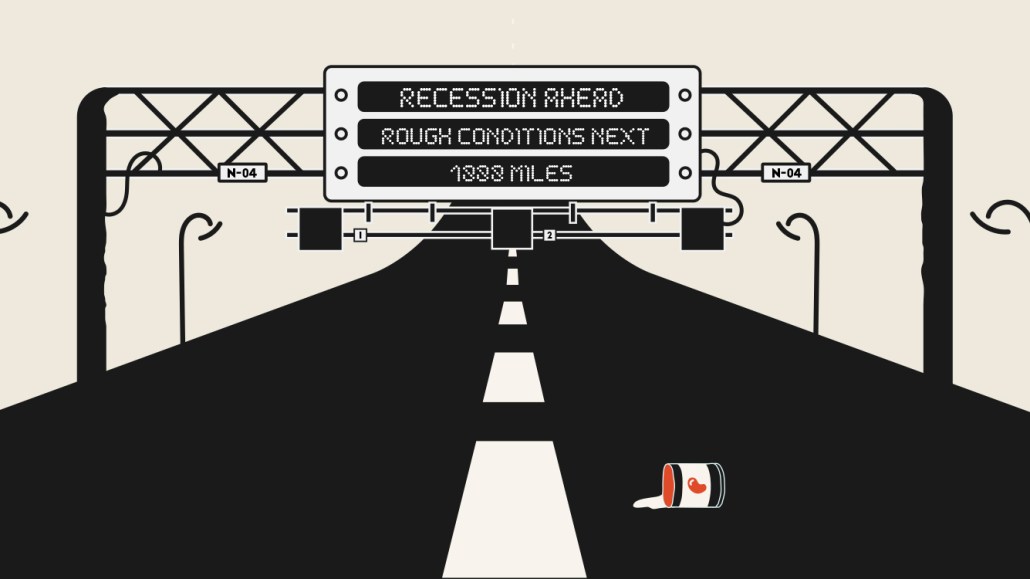
This research is based on unique data collected from our proprietary audience of publisher, agency, brand and tech insiders. It’s available to Digiday+ members. More from the series →
In February, publishers braced themselves for a tough quarter ahead. Now, reality is beginning to emerge.
A Digiday Research survey of 127 publishers found that 52% of publishers missed their first-quarter numbers. About 23% managed to exceed their forecasts, while 25% hit them.
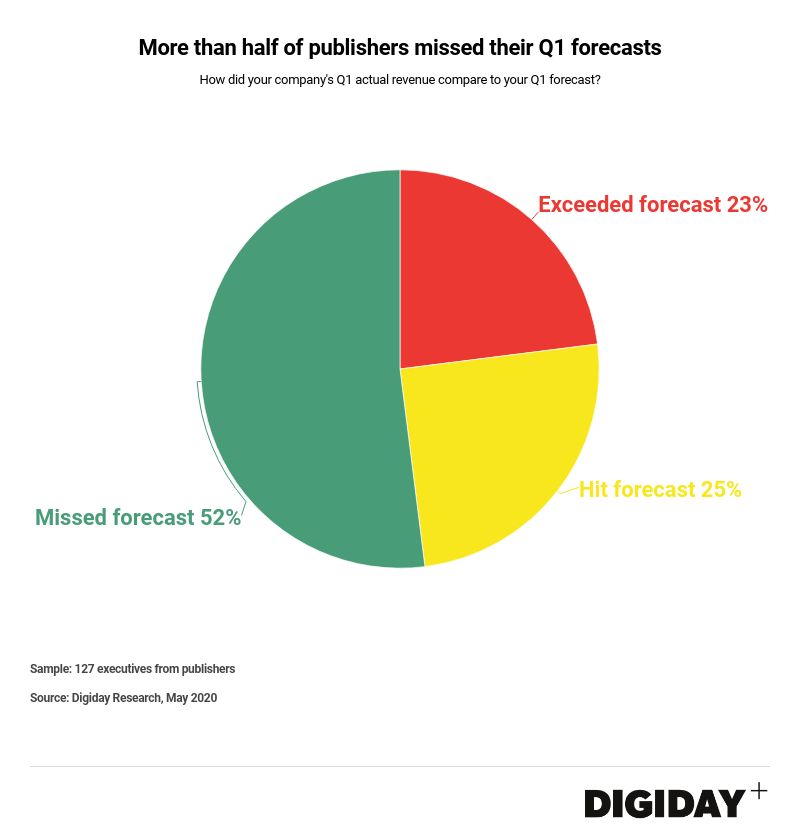
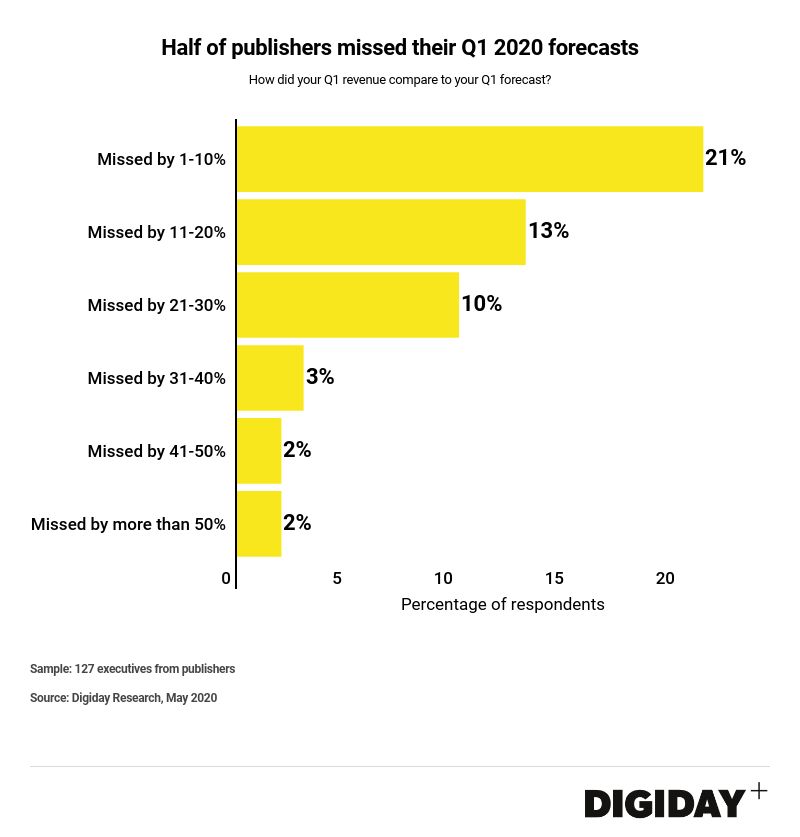
Publishers are bracing for a worse second-quarter: 80% have lowered forecasts.
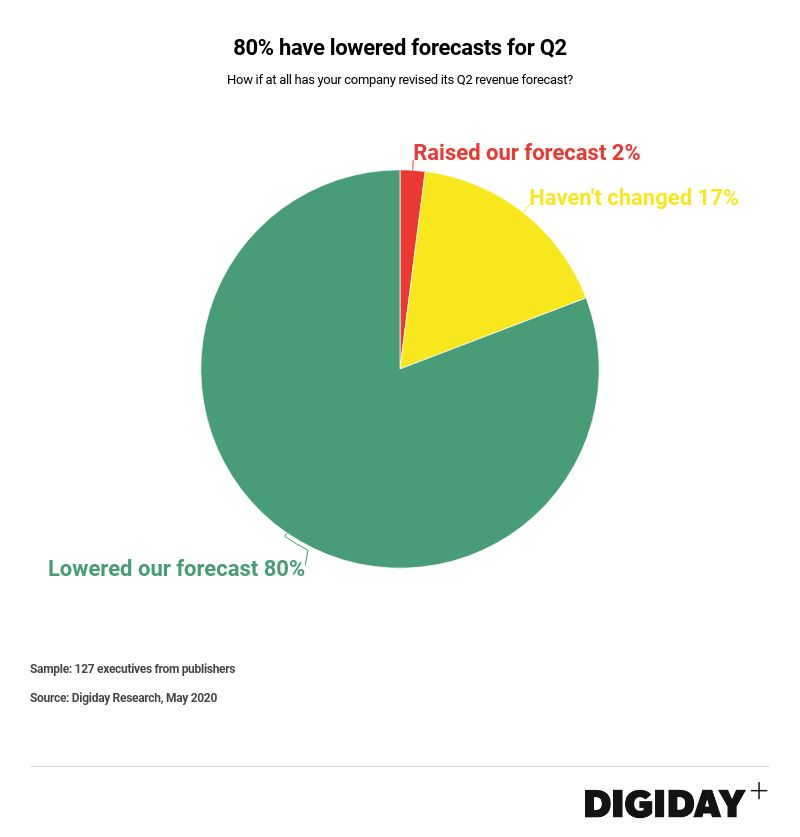
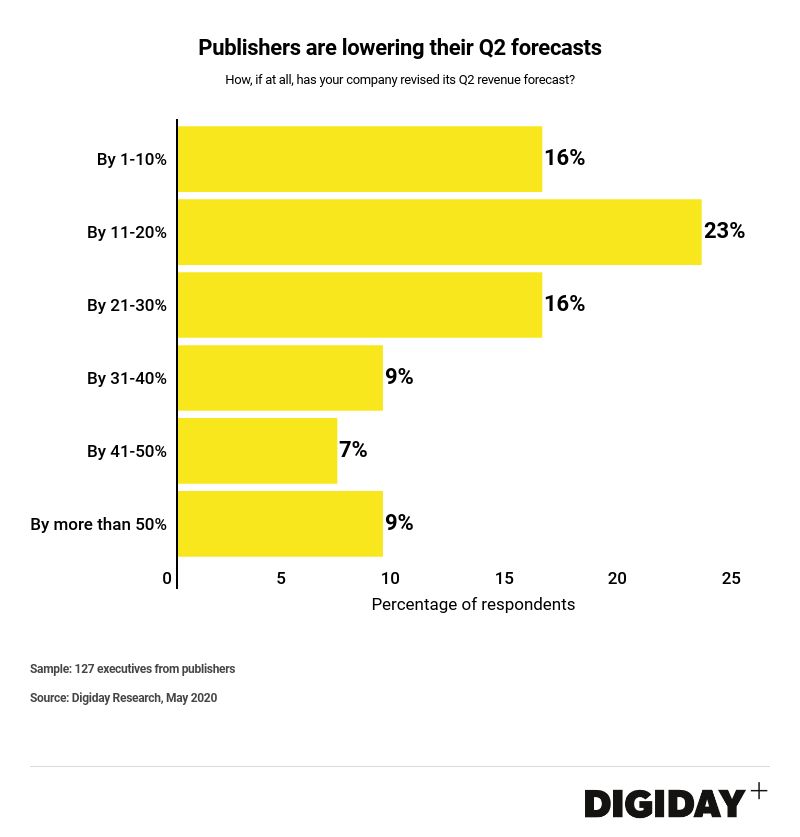
Back in March, Digiday Research found that 88% of the publishing executives surveyed expected to miss business goals for the entire year. About 85% of them expected to see a decline in ad revenue, 79% in event revenue and 68% in commerce revenue.
It’s been an especially tough time for news publishers: 59% of them said they missed their forecasts in the first quarter, and 19% of them exceeded it.
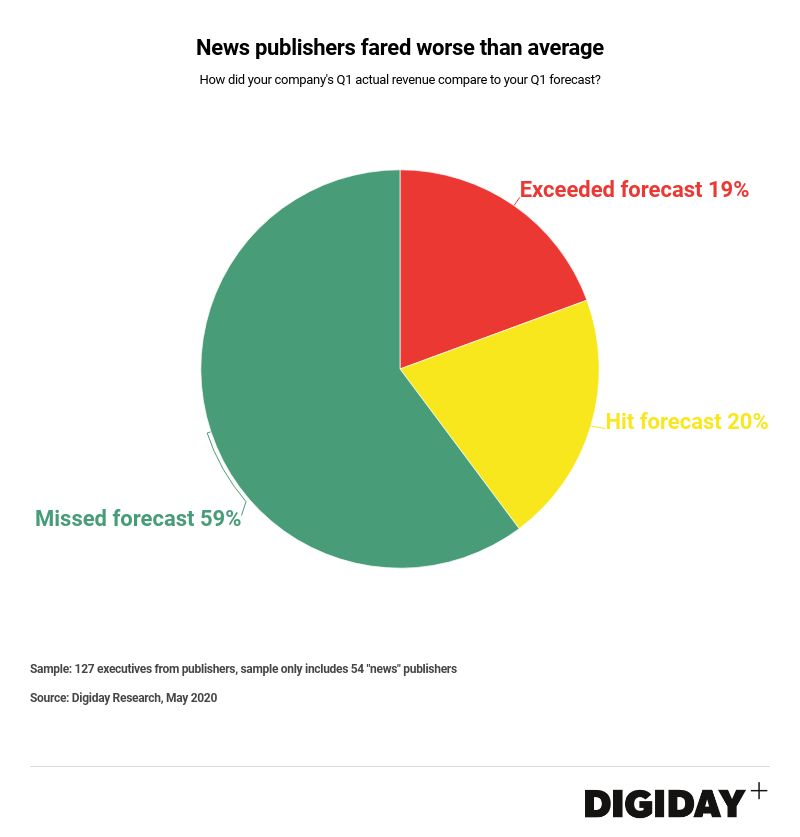
As for the second quarter, only 1% have raised their forecast, while a whopping 70% have lowered it.
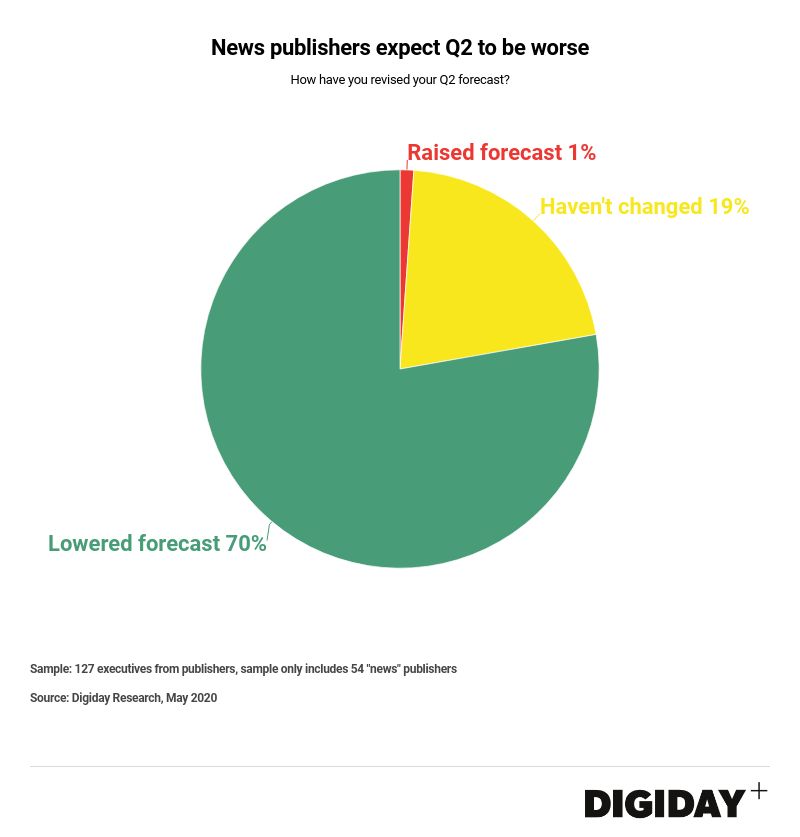
Advertisers continue to be reluctant to spend any money on ads alongside coronavirus content. A prior Digiday survey found that 40% of brands are not advertising next to coronavirus-related news online, up slightly from the same survey conducted a month ago, when 37% said they will not buy ads alongside coronavirus-related content.
More in Media

From sidelines to spotlight: Esports events are putting creators center stage
Esports events’ embrace of content creators reflects advertisers’ changing priorities across both gaming and the wider culture. In the past, marketers viewed esports as one of the best ways to reach gamers. In 2025, brands are instead prioritizing creators in their outreach to audiences across demographics and interest areas, including gaming.

Condé Nast and Hearst strike Amazon AI licensing deals for Rufus
Condé Nast and Hearst have joined the New York Times in signing a licensing deal with Amazon for its AI-powered shopping assistant Rufus.
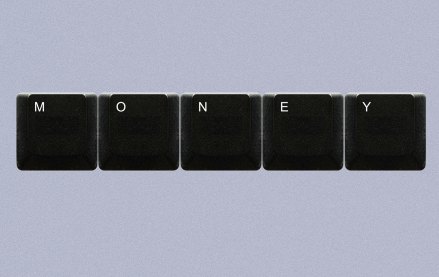
Media Briefing: AI payouts may be entering a new era
AI compensation is evolving — and new models, not just publisher demands, are driving the shift beyond flat-fee licensing.





